The Association for Mormon Letters is pleased to present John Serge Bennion with its 2021 Lifetime Achievement Award. The award was presented on June 5 as part of the Association for Mormon Letters Virtual Conference, where the award citation was read and a panel of Bennion admirers (Darlene Young, Gideon Burton, Dennis Clark, and Alison Maeser Brimley) convened to discuss his literary and teaching accomplishments. You can watch a recording of the panel here. Below is the award citation, followed by a brief review of John’s career up to this point.
Lifetime Achievement Award Citation
Through his career as an author John Bennion’s fiction has been deeply rooted in the West and in the wilderness places, both literal and figurative, that are the backdrop for Mormon history and the Mormon psyche. A reviewer of his short story collection, Breeding Leah and other Stories (1991), described Bennion’s characters as “holding the desert at bay” — a phrase labeling a driving theme across Bennion’s work, including his candid nonfiction. In Bennion’s writing, such as his 2000 novel, Falling Toward Heaven, can be found familiar patterns of Mormon life and the sustaining legacy of religious belief, yet these are counterpoised with the stark landscapes of failing families, domestic duress, and the solitary soul at odds with God or himself. Readers of Bennion’s fiction are regularly rewarded by wry humor, quirky characters, and pleasantly unexpected circumstances. His more Mormon stories are less stereotypically so: he contributes a fresh and enjoyable idiom to LDS expression — one both authentic to the culture yet unique to himself. Bennion’s two most recent novels, An Unarmed Woman (2019) and Ezekiel’s Third Wife (2019) playfully take up the murder mystery genre and showcase Bennion’s deft use of Mormon history and his keen knowledge of desert life and lore.
John Bennion led the Association for Mormon Letters as its president from 1999-2000, during which time he not only ran the board and organized AML meetings, but wisely archived the early and robust AML-List email discussion board, oversaw the early issues of the literary journal Irreantum, and preserved the Proceedings of the Association for Mormon Letters in BYU’s Harold B. Lee Library, in addition to making fundraising efforts to sustain the association’s activities.
Bennion’s literary legacy extends beyond his publications to his long career at Brigham Young University as a much-loved and respected teacher and mentor. There, he advised the publication of BYU’s creative writing journal, Inscape, training and overseeing multiple student editorial boards. In his Wilderness Writing course he regularly took his LDS students away from their keyboards and the safety of classrooms out into the field on camping trips, or on hiking ventures across Utah deserts where observation and conversation elicited literary reflection. With students he also logged untold hours along the hedgerows and byways of the United Kingdom in his celebrated British Literature and Landscape study abroad program. There, he immersed students in the same natural environments that inspired William Wordsworth or George Eliot. Under his good-natured leadership, John Bennion has challenged generations of students to discover the resonance between their outer and inner landscapes, mediated by literature and the reflective and creative practices of authentic personal writing.
For his many years of influential literary service and for his personal attainments in achieving a body of entertaining, insightful and engaging storytelling, the Association for Mormon Letters is pleased to recognize John Bennion with its Lifetime Achievement Award for 2020.
John Bennion’s life and career
John’s short autobiography, from his webpage:
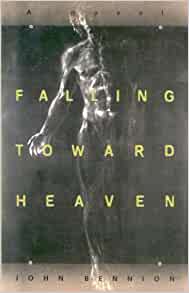 “A native of the Utah desert, John Bennion writes personal and historical essays and fiction about people struggling with that forbidding landscape. He has published a collection of short fiction, Breeding Leah and other Stories (Signature Books, 1991), and three novels—Falling Toward Heaven (Signature Books, 2000), An Unarmed Woman (Signature Books, 2019), and Ezekiel’s Third Wife (Roundfire Books, 2019). Another novel, Spin, is forthcoming from BCC Press. He has published short stories and essays in Interdisciplinary Studies in Literature and Environment, Hotel Amerika,Southwest Review, Hobart, Palaver, AWP Chronicle, Utah Historical Quarterly, Journal of Mormon History, Dialogue: A Journal of Mormon Thought, Best of the West II, High Country News, English Journal, and others. Essays are forthcoming in Journal of Mormon History, Literature and Belief, and a collection of Mormon ecological writing, Blossom as the Cliffrose, to be published by Torrey House Press. He is
“A native of the Utah desert, John Bennion writes personal and historical essays and fiction about people struggling with that forbidding landscape. He has published a collection of short fiction, Breeding Leah and other Stories (Signature Books, 1991), and three novels—Falling Toward Heaven (Signature Books, 2000), An Unarmed Woman (Signature Books, 2019), and Ezekiel’s Third Wife (Roundfire Books, 2019). Another novel, Spin, is forthcoming from BCC Press. He has published short stories and essays in Interdisciplinary Studies in Literature and Environment, Hotel Amerika,Southwest Review, Hobart, Palaver, AWP Chronicle, Utah Historical Quarterly, Journal of Mormon History, Dialogue: A Journal of Mormon Thought, Best of the West II, High Country News, English Journal, and others. Essays are forthcoming in Journal of Mormon History, Literature and Belief, and a collection of Mormon ecological writing, Blossom as the Cliffrose, to be published by Torrey House Press. He is 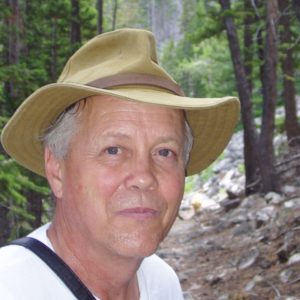 completing a collection of essays about his Bennion ancestors, who have ranched and lived in the western desert of Utah for six generations.
completing a collection of essays about his Bennion ancestors, who have ranched and lived in the western desert of Utah for six generations.
He is an associate professor in the English Department at Brigham Young University, where he teaches writing fiction and creative non-fiction. He has thirty years experience leading outdoor writing programs that use the writing of personal essays to promote student growth. These include Wilderness Writing, Literature and Landscape, Integrated Natural History, and Insects, Writing, and Art.”
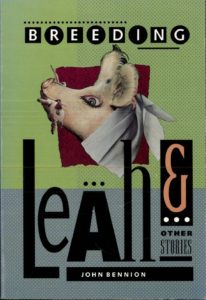 John has won AML Awards for his short story “A Court of Love” (1988) and his personal essay “Like the Lilies of the Field” (2006). The 2006 essay, about recovering from depression and walking England with a study abroad group, received the Dialogue Essay of the Year Award.
John has won AML Awards for his short story “A Court of Love” (1988) and his personal essay “Like the Lilies of the Field” (2006). The 2006 essay, about recovering from depression and walking England with a study abroad group, received the Dialogue Essay of the Year Award.
Among his recent publications are:
“Errorless Learning in Conditioning of Biosynth Clones,” Palaver (Spring 2020). A science fiction story about cloned humans, told in the form of a scientific paper presented in 2063.
“The Arid Archipelago: Flow of Water, Flow of People,” Blossom as a Cliffrose: Mormon Legacies and the Beckoning Wild. Torrey House Press, 2021. An essay about the ranching Bennion family and their relationship with the environment in Rush Valley, Utah, from a forthcoming anthology of Mormon environmental writing.
John is a beloved teacher, he has mentored many young authors at BYU over the years and led countless study abroad trips to England. He received BYU English Department teaching awards in 2006 and 2017 and received a Nan Grass Fellowship (2014-2016) and an Alcuin Fellowship (2017-2020).
John has been an important part of the Association for Mormon Letters since 1989. He served on the AML board from 1991 to 1994, and then was the Secretary/Treasurer from 1994 to 1998. He served as AML President in 1999 to 2000, at the time when the literary journal Irreantum was created. He has served as an AML award judge many times. He has been an active participant in many other arts and literary organizations in Utah.
About his childhood and early adulthood, John has written:
“Born in 1953 in Salt Lake City, I grew up in Vernon, Utah, a village of about 200 people in the southern end of Rush Valley. I attended elementary school there and worked on my father’s ranches at Greenjacket (6 miles south of town) and Riverbed (40 miles west). I completed junior high and high school in Tooele and went to BYU for a year before being called on my mission, which was to the Navaho reservation. I learned to speak only a little Navaho, mostly in connection with religious subjects. When I returned, I finished my undergraduate degree in English at Utah State University, with a certificate to teach secondary classes.
I met Karla and we married on 10 June 1977. We lived in Logan through the summer and moved to Mt. Pleasant, where we lived while I taught English, journalism, and art (for which I was not qualified) at Sanpete Junior High. Much of what I know about pain I learned in those classrooms, because I was a horrible disciplinarian and an inadequate teacher. We soon moved to Karla’s father’s farm near Mona, and I transferred to Juab Middle School, where I taught for three years, meanwhile getting my MA degree at BYU.
In 1982 I quit and we moved to Logan where Karla finished her Masters Degree in psychology. In 1984 we moved to Houston, where we lived for 5 years, while I completed my doctorate at the University of Houston in Literature and Creative Writing. In 1989 I was able to get a job at BYU, where I have taught ever since. Karla completed her doctorate at BYU and now works as a psychiatric therapist.”
Here are reviews of John’s two most recent novels, both published in 2019: An Unarmed Woman and its sequel Ezekiel’s Third Wife, murder mysteries set in Rush Lake Valley in 1887-1891.
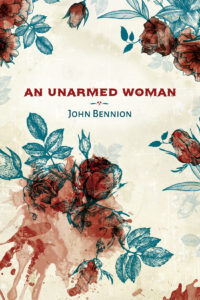 An Unarmed Woman
An Unarmed Woman
“Secret marriages, hidden rooms, fractured families, cold-blooded murder. Seventeen-year-old Rachel O’Brien and her polygamous stepfather, J.D., are hot on the trail of the shotgun demise of two federal deputies one wintry Oquirrh-mountain night. This snowy ride with Rachel and J.D. will test your mettle, as it does Rachel’s devotion to a faith that mostly pleases her but riles her sensibilities too. Rachel’s riveting journey provides crucial insights about the tangled and strained loyalties that came with living ‘the Principle.’” –Heidi Naylor, author, Revolver
“Bennion has written a mystery worthy of the Old West landscapes. A compelling story set in pioneer-era Utah, with one of the most original and captivating protagonists to appear in Mormon literature—Rachel O’Brien, a fearless and savvy tracker of truth. She adroitly exercises logic and insight into human nature, in a way that rivals Sherlock Holmes, as she attempts to sleuth out the mystery of who in the their small community killed federal deputies sent by the US government to ferret out Mormon polygamists.” –Steven L. Peck, author, Gilda Trillim: Shepherdess of Rats.
“In this absorbing narrative, John Bennion shows his mastery of yet another genre, the murder mystery. Set in a Mormon town on the edge of Utah’s west desert, this tale reveals the tensions of polygamy among the Latter-day Saints of the pioneer era—virtually engaging as it does the entire population of the town, which has good reason to fear the wide-ranging effects of the crime. Among the more remarkable features of the novel is its narrator, Rachel O’Brien, whose acute observations and unladylike forwardness in making her opinions known show her to be a sort of proto-feminist.” –Levi S. Peterson, author, The Backslider, and Juanita Broooks: Mormon Woman Historian
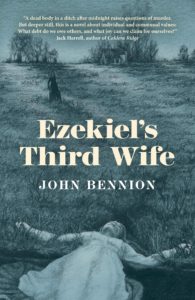 Ezekiel’s Third Wife
Ezekiel’s Third Wife
John Bennion’s novel Ezekiel’s Third Wife immerses us in the Utah Territory of the late 1880s—a time of hardscrabble farming, plural marriage, and outsider suspicion. A dead body in a ditch after midnight raises questions of murder. But deeper still, this is a novel about individual and communal values: What debt do we owe others, and what joy can we claim for ourselves.–Jack Harrell, author of Caldera Ridge
Aridity, Wallace Stegner wrote long ago, is the “ultimate unity” and “the one inflexible condition” of the American West, and survival there demands cooperation and community, which aridity will test to the breaking point. Nowhere has this been more true than in the West Desert of Utah where John Bennion was born and bred. Bennion’s ruralist literary roots may reach toward Hardy and Lawrence, but grow deepest into that desert dust he has never wished to shake off. Descended from 19th century British converts to Mormonism who sought to make the West Desert fulfill Isaiah’s prophecy and “blossom as the rose,” Bennion has soaked his imagination in the felt life of his patriarchal and polygamous forebears, and in this novel he summons out of the dust the voice of Rachel O’Brien Rockwood Wainwright Harker, a young polygamous wife, secret rebel, and apprentice sleuth, who discovers that “Only lust for water was strong enough to make a good person kill.” Listen for the story she has to tell.–Bruce W. Jorgensen, writer, poet, and literary critic

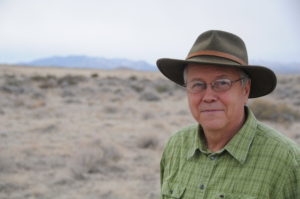
Congratulations to John — scholar, gentleman all-around good guy, and one of my favorite AML-ers! Well deserved!